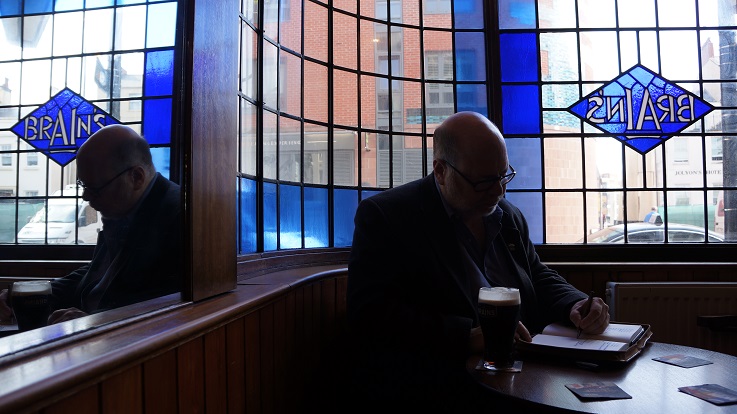 |
150. On Curiosity
Ms Keogh, my cherished companion for thirty-five years, would generously praise my curiosity. She claimed she found it infectious. I had a similar regard for her curiosity and I don’t see why she thought mine was greater than her own. Three times, between 2011 and 2015, we drove across the American continent at her behest before immigrating to Britain. Another time, it was her idea to drive 450 miles to Ottawa just so we could see paintings by Caravaggio.
Near the end of her life, due to chronic renal failure, she would send me out on afternoon adventures so I could come home and report on my discoveries.
When Ms Keogh said, “I want to see Paris before I die,” I was struck by the absurdity of the expression. Once we are dead, how could it matter if we saw Paris or not. Her meaning didn’t escape me. She wanted to see Paris now! We were living in the moment and she didn’t want me to scuttle the chance with excuses for postponement. We both knew she was dying. It felt important to her. She wanted to make the trip before she was physically unable. It was during a weekend between her dialysis treatments. We never had the time to do it again.
After she died, I was left inside a country foreign to me. Ms Keogh brought me to the United Kingdom nine years ago and I have not yet thoroughly explored it. I am seventy-three and might not live another ten useful years. I certainly cannot expect to live twenty. Meanwhile, I have become a British citizen. Will ten years be enough to know this country well? I could fill the next ten years without leaving this island. I am curious.
Why am I considered by my friends so odd for being curious? Why aren’t they equally as curious? Is it not a quality?
Perhaps a segment of the population is born without curiosity, but that seems unlikely. How is a baby to develop and prosper and teach itself without an abundance of curiosity. There is so much curiosity that a parent, who isn’t negligent, is plugging wall sockets and placing cleaning agents out of reach. Babies are all too often fearless experimenters, feeling and tasting everything, and taking things apart. Aren’t we all born explorers?
The only thing keeping a child from being a scientist is a lack of critical thinking. Critical thinking takes courage to rip oneself away from beliefs that bring comfort. It might not even be possible for a child to develop critical thinking as they are trying to belong to the society and culture into which they have been born. All their efforts are to fit in. It is their need to feel safe and protected in their surroundings. They have no choice than to trust the adults. They assign “this is correct” first to their parents and then to their peers by virtue of happenstance at birth.
What plugs this desire for growth and to know all things? Authoritarianism crushes curiosity, whether curiosity is prohibited by parents, priests, or politics. Curiosity is not allowed for some and it is beaten out of them. Their humanity is stifled as they are denied the growth that comes with comprehending how others think and feel. The authoritarian believes how others think and feel is a dangerous contagion and one must be isolated from being contaminated by them.
Individuals, small communities, and whole nations deprive themselves of enrichment and growth, but most importantly of surviving with the changing times because they can only feel comfortable with the familiar, which places them, in their minds, as special and correct.
Where did my curiosity come from?
The best thing my mother did for me was neglect me. She left me unmonitored to roam freely and make discoveries. She never took interest in my discoveries.
I attribute my curiosity to my father. He inculcated it in me. He never left a question hanging. If he couldn’t answer it, he admitted it. He taught me to question authority, even his own. He would listen to good argument, even from this child, and allowed himself to be persuaded when such arguments were sound. I was never to be dismissed because the adults were speaking now. He respected me. I never heard him answer, “Because I said so!”
![]()
Mr Bentzman will continue to report here regularly about
the events and concerns of his life. If you've any
comments or suggestions, he would be pleased to hear from you.
You can find his
several books at www.Bentzman.com.
Enshrined
Inside Me, his second collection of
essays, is now available to purchase.
